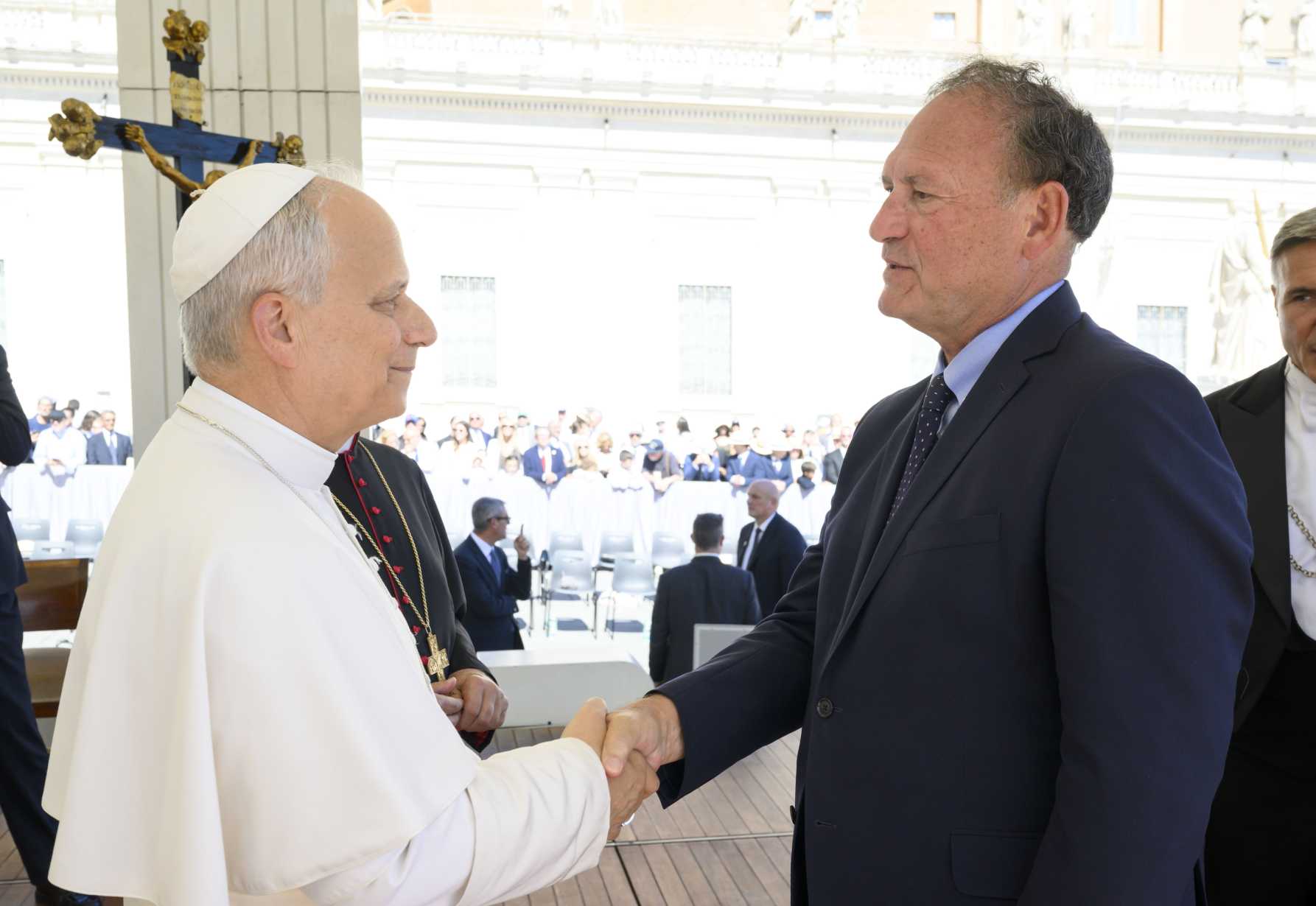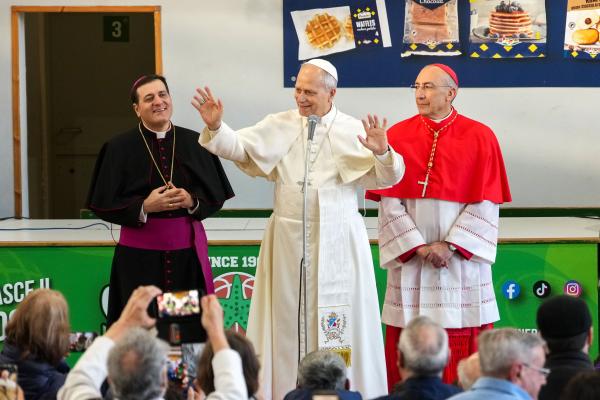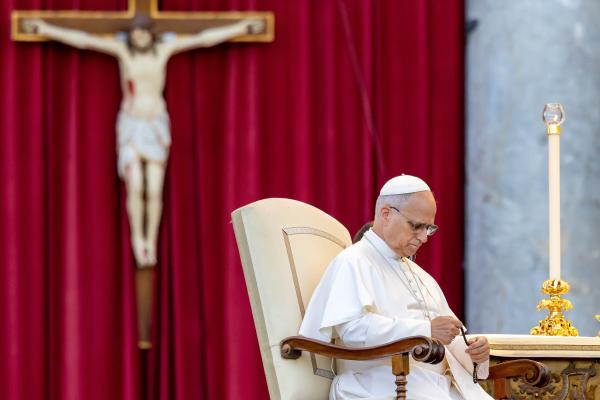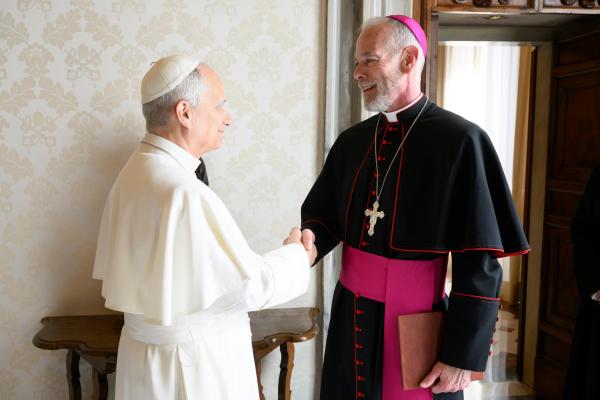True justice promotes dignity, equality, forgiveness, pope tells judges
U.S. Supreme Court Justice Samuel A. Alito Jr. and judges, lawyers, court officials, canon lawyers and law professors from about 100 countries took part in the Jubilee of Justice with Pope Leo XIV.
 Cindy Wooden
Cindy Wooden

Pope Leo XIV greets U.S. Supreme Court Justice Samuel A. Alito Jr. at the end of an audience in St. Peter's Square Sept. 20, 2025, as part of the Jubilee of Justice. (CNS photo/Vatican Media)
VATICAN CITY (CNS) -- Christians committed to the exercise of justice on behalf of a nation or the Catholic Church, must strive to fully respect the law, the dignity of the person and the need for reconciliation and forgiveness, Pope Leo XIV said.
Under a very warm midday sun Sept. 20, the pope greeted thousands of participants in the Jubilee of Justice. U.S. Supreme Court Justice Samuel A. Alito Jr. and judges, lawyers, court officials, canon lawyers and law professors from about 100 countries attended the event.
Pope Leo focused his remarks on the beatitude, "Blessed are they who hunger and thirst for righteousness (or justice) for they will be satisfied."
"To 'hunger and thirst' for justice means being aware that it demands personal effort to interpret the law in the most humane way possible," the pope said. "But more importantly, it calls us to long for a 'satisfaction' that can only be fulfilled in a greater justice -- one that transcends particular situations."
A nation cannot be said to be just only because laws are applied and procedures followed, he said. And upholding the maxim, "to give each their due," is not enough either.
In fact, Pope Leo said, true justice unites the dignity of the person, his or her relationship with others and the shared structures and rules that aim to promote the common good, including of the offender.
The biblical stories of the persistent widow, the prodigal son and the laborers who are paid the same although they work a different amount of time, he said, demonstrate that "it is the power of forgiveness -- inherent in the commandment of love -- that emerges as a constitutive element of a form of justice capable of uniting the supernatural with the human."
"Evangelical justice, therefore, does not turn away from human justice, but challenges and reshapes it: it provokes it to go further, because it pushes toward the search for reconciliation," the pope said.
"Evil, in fact, must not only be punished, but repaired -- and for this, a deep gaze toward the good of individuals and the common good is necessary," Pope Leo said. "It is a demanding task, but not impossible for those who, aware that they perform a service more demanding than others, commit themselves to living an irreproachable life."
Justice, he said, does not only assume the equal dignity of the person brought before a court, for example. Rather it strives to promote that equal dignity.
"Effective equality is not simply formal equality before the law," the pope said. "This formal equality, though indispensable for the proper exercise of justice, does not eliminate the reality of growing inequalities, whose primary effect is often lack of access to justice."
Pope Leo asked the judges and lawyers "to reflect on an aspect of justice that is often not sufficiently emphasized: the reality of so many countries and peoples who 'hunger and thirst for justice' because their living conditions are so unjust and inhumane that they become intolerable."



